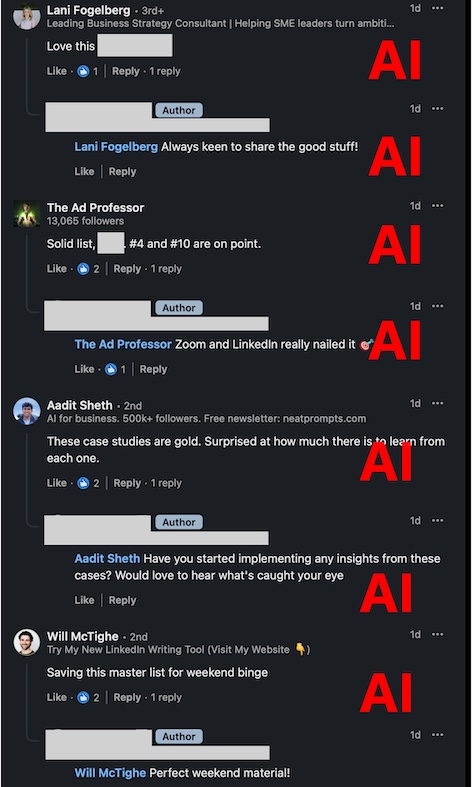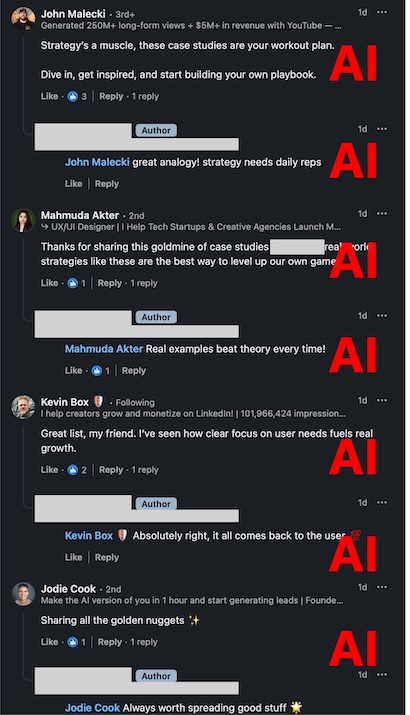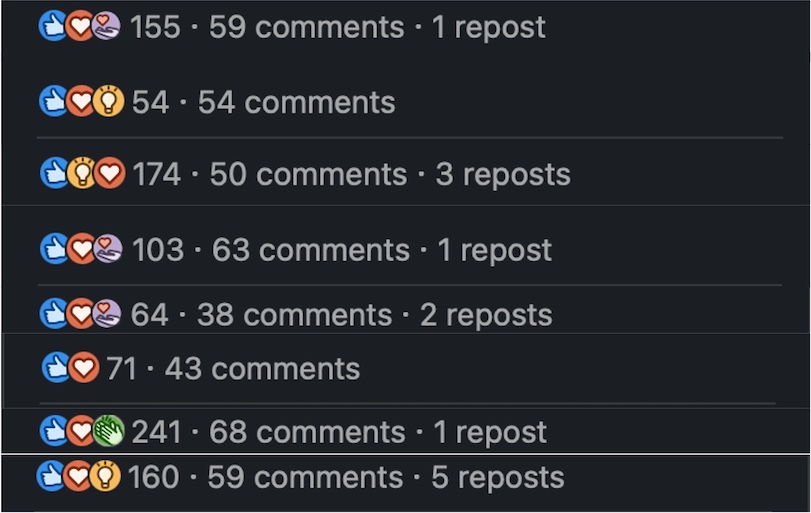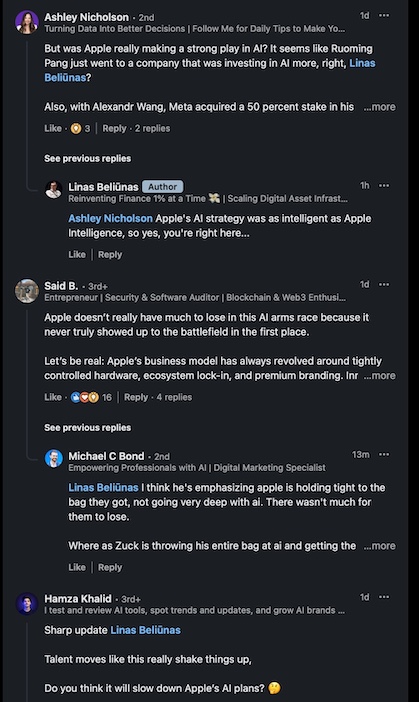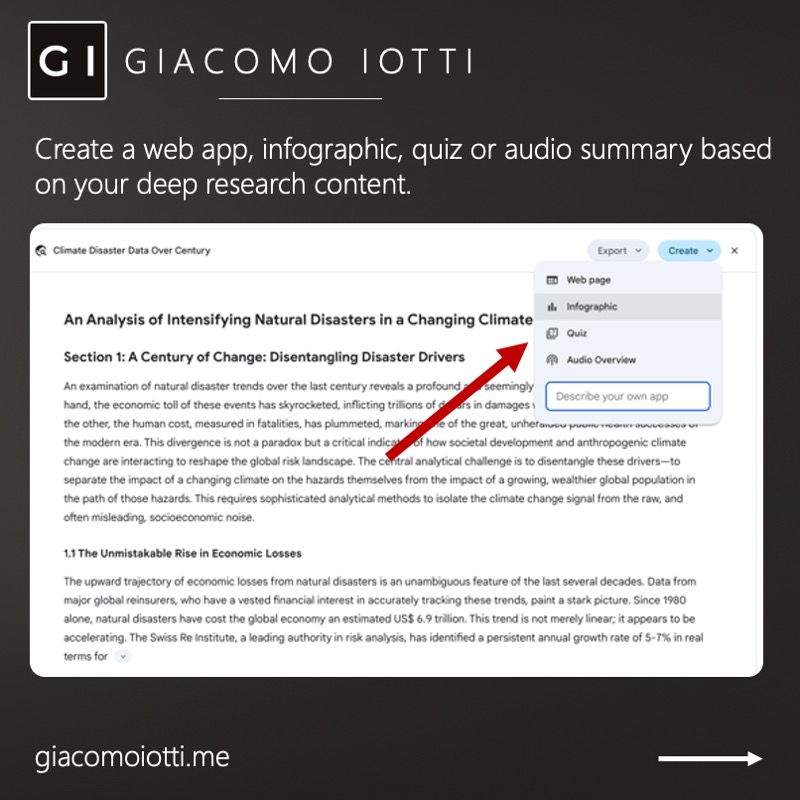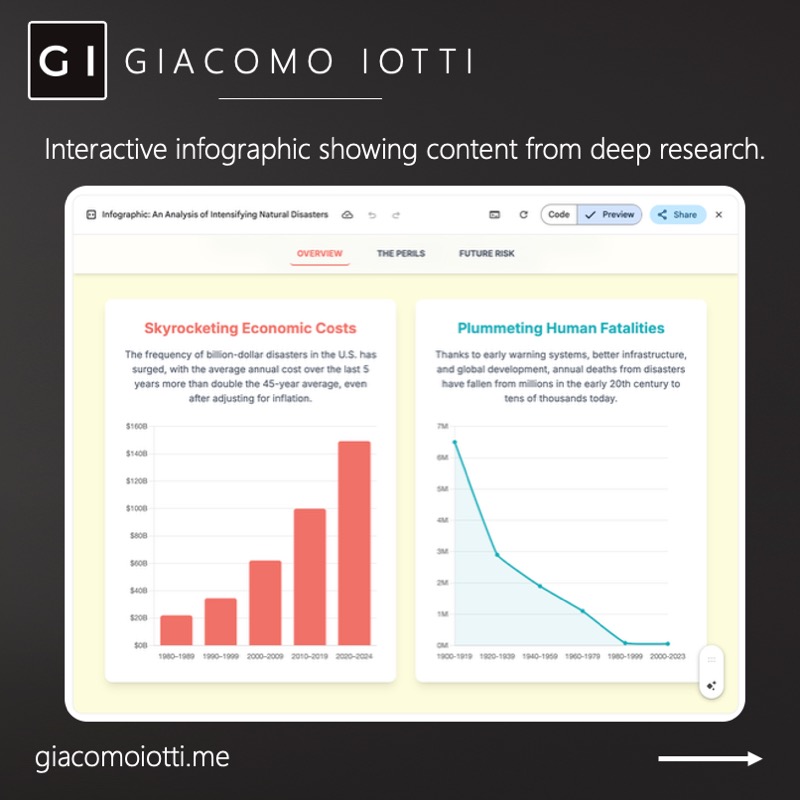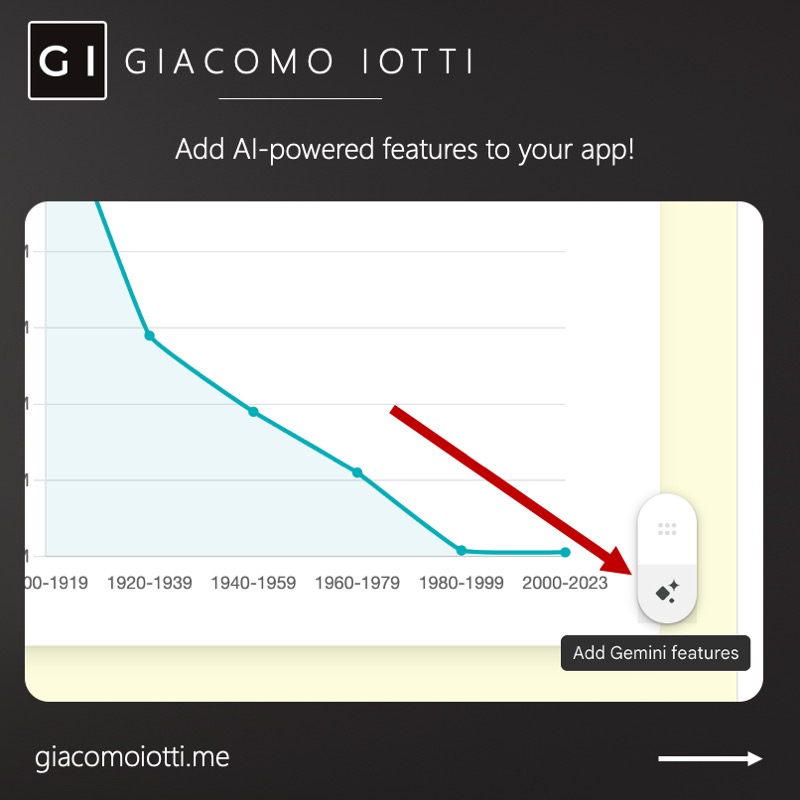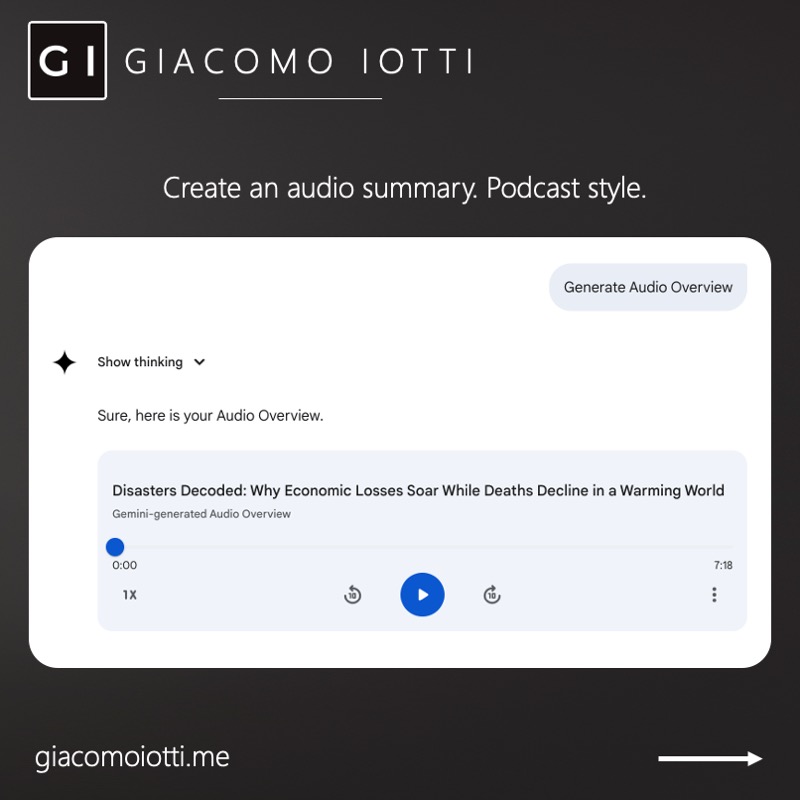
THIS HAS TO STOP ⛔
Big LinkedIn creators are liking and commenting each other's posts with bots.
Just google "automatic comments linkedin".
It's a booming market.
I found a whole ecosystem of major creators (>100k followers) in a closed loop.
→ They all comment on each other's posts, instantly.
→ The comments are painfully, obviously written by AI.
→ So are the author's replies 😔
All their posts have roughly the same number of comments.
No surprise.
I have followed some of these creators for years, even before AI.
So I witnessed the change.
Their posts used to be original, valuable and generate genuine conversations.
Followers were growing, but not exponentially.
Then the shift to bots, to pump followers over 100k.
Now, compare that to creators like Linas Beliūnas, one of my favourites.
His comments section is alive.
Real thoughts. Real conversations. Real humour.
Even typos.
Linas take active part in the conversations.
I get the "fake it 'til you make it" hustle.
Use fake engagement to eventually attract real followers.
But we're really drowning in AI-generated garbage here.
WHAT'S THE POINT?
If platforms don't start filtering this out, the entire creator and social media marketing economy will collapse.
But here's the truly scary part:
what if I'm wrong?
What if those soulless comments are intentionally written by humans?
It means we humans are becoming the very machines we're trying to compete with!
and the question still remains,
what's the point then?

